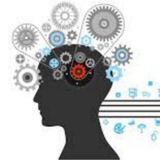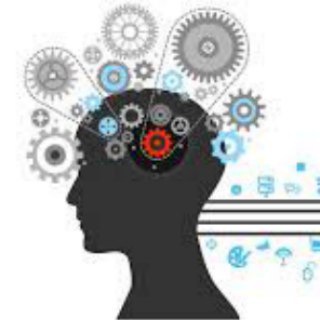Прогноз развития искусственного интеллекта в 2019 г.
https://www.itweek.ru/ai/article/detail.php?ID=204910
https://www.itweek.ru/ai/article/detail.php?ID=204910
itWeek
Прогноз развития искусственного интеллекта в 2019 г.
Можно ожидать дальнейшего прогресса во многих направлениях, от регулирования защиты персональных данных до обучения на моделях и самообслуживания искусственного интеллекта (ИИ), пишет ведущий аналитик Wikibon в области науки о данных, глубокого обучения
❤1
Padam: Closing the Generalization gap of adaptive gradient methods in training deep neural networks
https://github.com/yashkant/Padam-Tensorflow
https://github.com/yashkant/Padam-Tensorflow
GitHub
GitHub - yashkant/padam-tensorflow: Reproducing the paper "PADAM: Closing The Generalization Gap of Adaptive Gradient Methods In…
Reproducing the paper "PADAM: Closing The Generalization Gap of Adaptive Gradient Methods In Training Deep Neural Networks" for the ICLR 2019 Reproducibility Challenge - yashkant/...
Understand TensorFlow by mimicking its API from scratch
https://medium.com/@d3lm/understand-tensorflow-by-mimicking-its-api-from-scratch-faa55787170d
https://medium.com/@d3lm/understand-tensorflow-by-mimicking-its-api-from-scratch-faa55787170d
Medium
Understand TensorFlow by mimicking its API from scratch
TensorFlow is a very powerful and open source library for implementing and deploying large-scale machine learning models. This makes it…
Self-Monitoring Navigation Agent for Vision-and-Language Navigation
https://github.com/chihyaoma/selfmonitoring-agent
https://github.com/chihyaoma/selfmonitoring-agent
GitHub
GitHub - chihyaoma/selfmonitoring-agent: PyTorch code for ICLR 2019 paper: Self-Monitoring Navigation Agent via Auxiliary Progress…
PyTorch code for ICLR 2019 paper: Self-Monitoring Navigation Agent via Auxiliary Progress Estimation - chihyaoma/selfmonitoring-agent
A guide to deep learning in healthcare
Andre Esteva, Alexandre Robicquet, Bharath Ramsundar, Volodymyr Kuleshov, Mark DePristo, Katherine Chou, Claire Cui, Greg Corrado, Sebastian Thrun & Jeff Dean
Nature Medicine
volume 25, pages 24–29 (2019)
Here we present deep-learning techniques for healthcare, centering our discussion on deep learning in computer vision, natural language processing, reinforcement learning, and generalized methods. We describe how these computational techniques can impact a few key areas of medicine and explore how to build end-to-end systems. Our discussion of computer vision focuses largely on medical imaging, and we describe the application of natural language processing to domains such as electronic health record data. Similarly, reinforcement learning is discussed in the context of robotic-assisted surgery, and generalized deep-learning methods for genomics are reviewed.
https://www.nature.com/articles/s41591-018-0316-z
Andre Esteva, Alexandre Robicquet, Bharath Ramsundar, Volodymyr Kuleshov, Mark DePristo, Katherine Chou, Claire Cui, Greg Corrado, Sebastian Thrun & Jeff Dean
Nature Medicine
volume 25, pages 24–29 (2019)
Here we present deep-learning techniques for healthcare, centering our discussion on deep learning in computer vision, natural language processing, reinforcement learning, and generalized methods. We describe how these computational techniques can impact a few key areas of medicine and explore how to build end-to-end systems. Our discussion of computer vision focuses largely on medical imaging, and we describe the application of natural language processing to domains such as electronic health record data. Similarly, reinforcement learning is discussed in the context of robotic-assisted surgery, and generalized deep-learning methods for genomics are reviewed.
https://www.nature.com/articles/s41591-018-0316-z
Nature
A guide to deep learning in healthcare
Nature Medicine - A primer for deep-learning techniques for healthcare, centering on deep learning in computer vision, natural language processing, reinforcement learning, and generalized methods.
Forwarded from Machinelearning
Padam: Closing the Generalization gap of adaptive gradient methods in training deep neural networks
https://github.com/yashkant/Padam-Tensorflow
https://github.com/yashkant/Padam-Tensorflow
GitHub
GitHub - yashkant/padam-tensorflow: Reproducing the paper "PADAM: Closing The Generalization Gap of Adaptive Gradient Methods In…
Reproducing the paper "PADAM: Closing The Generalization Gap of Adaptive Gradient Methods In Training Deep Neural Networks" for the ICLR 2019 Reproducibility Challenge - yashkant/...
A radical new neural network design could overcome big challenges in AI
https://www.technologyreview.com/s/612561/a-radical-new-neural-network-design-could-overcome-big-challenges-in-ai/
https://www.technologyreview.com/s/612561/a-radical-new-neural-network-design-could-overcome-big-challenges-in-ai/
MIT Technology Review
A radical new neural network design could overcome big challenges in AI
David Duvenaud was collaborating on a project involving medical data when he ran up against a major shortcoming in AI. An AI researcher at the University of Toronto, he wanted to build a deep-learning model that would predict a patient’s health over time.…
The new fast.ai research datasets collection, on AWS Open Data
https://www.fast.ai/2018/10/16/aws-datasets/
https://www.fast.ai/2018/10/16/aws-datasets/
Graph Wavelet Neural Network (ICLR 2019) -- Pytorch implementation
Paper: https://openreview.net/forum?id=H1ewdiR5tQ
PyTorch: https://github.com/benedekrozemberczki/GraphWaveletNeuralNetwork
Paper: https://openreview.net/forum?id=H1ewdiR5tQ
PyTorch: https://github.com/benedekrozemberczki/GraphWaveletNeuralNetwork
OpenReview
Graph Wavelet Neural Network
We present graph wavelet neural network (GWNN), a novel graph convolutional neural network (CNN), leveraging graph wavelet transform to address the shortcoming of previous spectral graph CNN...

